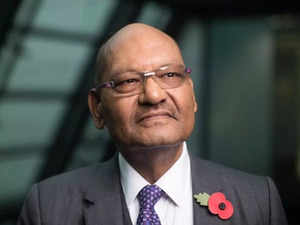
Children throughout The Bahamas are now back in the classroom; however, they are missing one key component to give them a well-rounded education, personal finance education. Basic personal financial education is an essential life skill that has become increasingly important in today’s complex economic environment. The most recent data provided by The Central Bank of The Bahamas indicates that while most Bahamians understand basic computation, only about one third understand complex concepts like the compounding effect of interest rates, the impact of inflation rates on purchasing power, or the knowledge of financial instruments such as stock and shares, mutual funds, and bonds.
In The Bahamas, where the average bank account has less than $1,000 in savings, the cost of living remains at its highest levels in recent history, high consumer debt is the norm, and less than 30 percent of businesses offer pensions to their employees, equipping citizens with the knowledge to manage their finances is critical and it must start early. While many schools currently offer finance-related elective courses, or embed some finance instruction in other subjects, or offer clubs to high school students, learning about personal finance should be a requirement supported by legislation. This ensures that all students have a foundation in financial literacy that not only benefits them individually but also strengthens the national economy.

Following our neighbors to the north Recognizing the immense benefits of financial education to students, the state of California in the United States passed a bill that adds the completion of a separate stand-alone, one-semester course in personal finance for students in grades 9 to 12 students to graduation requirements. California joined twenty-five other US states that have pledged to incorporate personal finance education into US school curricula over the next several years as a part of a movement called Mission 2030, started by Next Gen Personal Finance (NGPF), a US nonprofit advocating for guaranteed personal finance. While many Bahamians deride The Bahamas’ tendency to copy what Americans do, this is one concept we should emulate.
Supporting a new generation of financially literate citizens One of the key reasons for including personal financial education in schools is that it empowers young people to make informed financial decisions from an early age. Many adults in The Bahamas struggle with financial concepts like managing credit, budgeting, saving, and investing. If students are taught these essential skills in the classroom, they will be better prepared to navigate financial challenges as they enter adulthood.
This early education can help reduce financial mistakes like taking on excessive debt or falling prey to bad investments and fraud. Encouraging entrepreneurial thinking Furthermore, personal finance education promotes entrepreneurship, which is crucial in a country with a growing demand for job creation to complement the flourishing tourism sector. Understanding concepts like cash flow management, loans, and investment strategies can inspire young Bahamians to start and sustain their own businesses.
This entrepreneurial spirit can diversify the economy and create more opportunities for innovation and employment. Promoting equality and inclusion Additionally, including personal finance courses in the curriculum can reduce economic inequality. It levels the playing field by ensuring that all students, regardless of their socioeconomic background, have access to the tools they need to build financial stability.
This can have a long-term impact on reducing the poverty rate in The Bahamas by creating a more financially secure and resilient population. Incorporating personal finance courses into the educational system is not just about teaching students how to manage money; it’s about empowering the next generation of Bahamians to build a more prosperous future for themselves and the nation..














